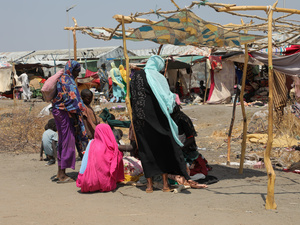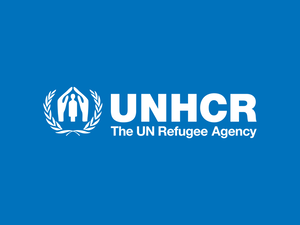Eleven years on, mounting challenges push many displaced Syrians to the brink
Eleven years on, mounting challenges push many displaced Syrians to the brink

Syrian refugee Fatima Al Mahmoud, 12, in the informal settlement in Minyeh, northern Lebanon, where her family lives. © UNHCR/Diego Ibarra Sánchez
UNHCR, the UN Refugee Agency, appeals to the world to not forget or neglect the growing needs of displaced Syrians inside and outside the country, 11 years since the crisis began.
Syria remains the world’s largest displacement crisis. More than 13 million people have either fled the country or are displaced within its borders.
Neighbouring and nearby countries require continued international support, having generously welcomed more than 5.6 million Syrian refugees – the vast majority worldwide. These countries are under increased financial pressure, especially in light of the devastating socio-economic impact of the COVID-19 pandemic. Refugees and host communities have been hit hard, losing livelihoods and facing surging prices for food and other necessities.
Today, most Syrian refugees in the region live in poverty. Prospects are dire for the most vulnerable among them, such as single mothers, children living without a caregiver, and people with disabilities. The situation is particularly dire in Lebanon, where over 90 per cent of Syrians live in extreme poverty, along with an increasing number of the communities that host them.
Children are dropping out of school to work. Early marriages are on the rise, especially among the most impoverished families. Improvements in access to education and health care are at risk of being eroded.
The situation would be worse still, but for a number of host countries taking positive steps such as allowing refugees access to the labour market, public health care and a range of other services. This has been achieved despite the large number of refugees hosted in these countries. Turkey continues to host the largest refugee population in the world, including over 3.7 million Syrians, while Lebanon and Jordan are among the countries with the highest number of refugees per capita globally.
Meanwhile, humanitarian needs inside Syria are mounting. More than 6.9 million people are still displaced inside the country, and 14.6 million people require humanitarian and other forms of assistance. Some 5.9 million people need help to secure safe accommodation, and many still face challenges accessing basic services like education and health care.
In 2021, three quarters of all households in the country said they could not meet their most basic needs – 10 per cent more than the year before.
Nevertheless, some Syrians choose to return home. In 2021, UNHCR verified or monitored the return of close to 36,000 refugees to Syria. Refugees cite various factors in their decision to return or not, such as their safety, property rights and livelihood opportunities. In parallel, many internally displaced Syrians have returned home, adding to the overall reintegration needs.
Political solutions are desperately needed to end 11 years of suffering. There is also a need to increase resettlement opportunities for the most vulnerable of Syrian refugees.
UNHCR calls on international donors to extend support for refugees and their hosts, and to address the urgent humanitarian needs inside Syria, including for internally displaced people, their host communities and returnees
Last year, less than half of the funding required for the Regional Refugee and Resilience Plan to respond to the Syria refugee crisis was received.
Inside Syria and as the needs grow, humanitarian organizations urgently require the resources necessary to strengthen their work inside the country. UNHCR has received seven per cent of the US$465.2 million it requires for its work in Syria in 2022.
A decisive moment for countries to demonstrate their commitment will be the donor conference on “Supporting the Future of Syria and the Region” in May, rallying support for refugees and host communities in the region, as well as for people in need within Syria.









